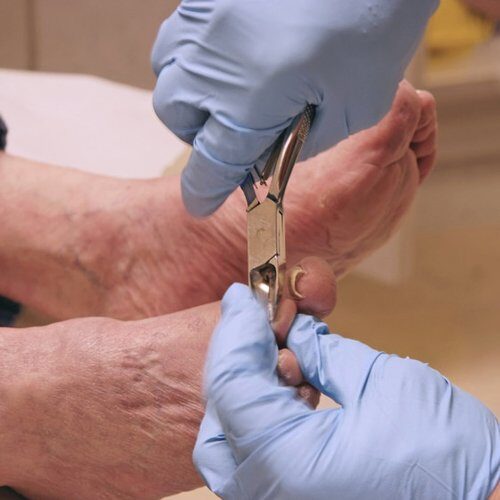What should I do if I think I have plantar fasciitis?
Frustrated by plantar fasciitis? Desperate for an answer?
Chronic heel pain is commonly diagnosed as plantar fasciitis, but there are lots of other causes from Policeman’s heel to trapped nerves, so the treatment needs to be tailored to your individual needs.
Podiatrists are the best people to accurately diagnose the cause of your heel pain and set you on the road to recovery.
The plantar fascia acts in the same way as a tendon, it will adapt to the load put on it, but it will complain if that load suddenly changes. Fluctuations in body weight can have an effect as can sudden changes in activity levels.

If you have pain in your heel when you first put your foot to the ground after resting, which improves after walking around for a while, then you may have plantar fasciitis.
There are a few things you can do yourself before consulting a podiatrist.
1 Make sure you have some cushioning in the heel of your shoe
2 Make sure the sole of your shoe is flexible under the ball of your foot but stiff at the heel and mid part of your foot
3 Icing your heel for 20 minutes will relieve the pain.
4 Using an anti-inflammatory gels such as Emugel or Ibuleve can help, applying them at night can help with the pain first thing in the morning.
5 Doing some simple calf stretches will help and rolling the affected sole of your foot over a tennis ball will massage it and give you some relief.
These simple tips will help, but to be sure that you heel pain is plantar fasciitis make an appointment to see a podiatrist. Get a diagnosis on the cause of your problem so that the treatment can be targeted.
If you have chronic heel pain call us now at Torbay Footcare and let one of our podiatrists take care of you and get you out there doing the things you love.
Phone us anytime on 01803 521880. The answer phone will pick up your message out of normal office hours. Or you can send us a message.

